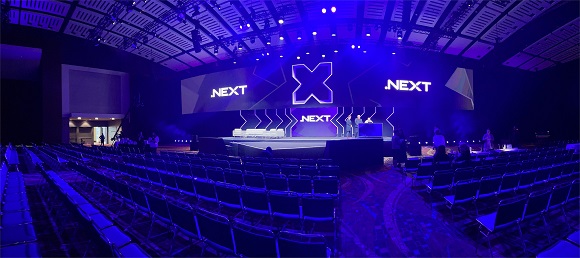Out of this world? Nutanix delivers ‘universal’ cloud operating model
Nutanix used its .NEXT conference in Chicago this month to announce Nutanix Central, a cloud-delivered solution that provides a single console for visibility, monitoring and management across public cloud, on-premises, hosted or edge infrastructure.
This will extend the universal cloud operating model of the Nutanix Cloud Platform to break down silos and simplify consistently managing apps and data anywhere. The company says that most organisations today are struggling with the complexity of managing an increasing number of environments across on-premises, public cloud and the edge, leading to management silos, costs, security risks etc.
According to the Nutanix Enterprise Cloud Index and the company’s ongoing statements emanating from this annual report and study, organisations looking for a seamless hybrid multi-cloud experience require a universal cloud operating model.
This means grasping consistent management across endpoints, integrated security, self-service and on-demand resources, governance and full license portability that allow customers to run apps and data anywhere.
The Nutanix Central product aims to simplify management at a large, federated scale across endpoints.
“The reality for most enterprise customers today is that they’re managing a vast number of applications across multiple environments. This is leading to significant management challenges that are only going to increase as hybrid multi-cloud deployments grow,” said Thomas Cornely, SVP of product management at Nutanix. “With Nutanix Central, we will extend our hybrid multi-cloud platform to deliver a truly universal cloud operating model to include consistent management across public clouds, on-premises, hosted and edge environments.”
Nutanix Central will provide cloud-delivered unified management and reporting of the entire Nutanix environment distributed across private, public and edge clouds from a single place.
Self-service scalability
It will also support multi-domain use cases including federated Identity and Access Management (IAM), global projects and categories, global fleet management, all enabling IT teams to deliver self-service infrastructure at scale while remaining in control of governance and security.
From the Nutanix Central dashboard, customers will access domain and cluster-level metrics, including capacity utilisation and alert summary statistics, to get a quick overview of the state of each domain. This functionality will also enable seamless navigation to individual domains, based on individual user role-based access control (RBAC), across all domains registered.
Additionally, customers will be able to discover, deploy and manage Nutanix solutions and interoperable partner solutions. Nutanix Central will be available to customers as part of their Nutanix Cloud Infrastructure™ (NCI) license.
Universal cloud operating model
Organisations struggling with managing applications and data across environments, including multiple public clouds, on-premises, hosted datacenter and edge endpoints, will benefit from Nutanix Central and a universal cloud operating model.
For example, an organisation with hosted datacentres in multiple locations, as well as different public cloud vendors across geographies will be able to enable a centralized governance and security program. Similarly, retailers with a large number of stores would greatly benefit from having one control plane to manage edge locations.
In addition to Nutanix Central, the company also announced new capabilities in the Nutanix Cloud Platform to support higher-performant and more secure applications and data – all of which will be managed through Nutanix Central.
Specifically, the improvements enable independent scaling of compute-only nodes running database virtual machines on either AHV or ESXi, to tune performance and reduce total cost of ownership and the introduction of high-performance storage-only nodes.
Nutanix will also deliver enhanced software-defined networking and simplified micro-segmentation capabilities across customer, partner and hyperscaler-owned networks by using Flow Virtual Networking (FVN) capabilities and Flow Network Security (FNS) features, allowing customers to exercise defence-in-depth for greater cyber resilience.




